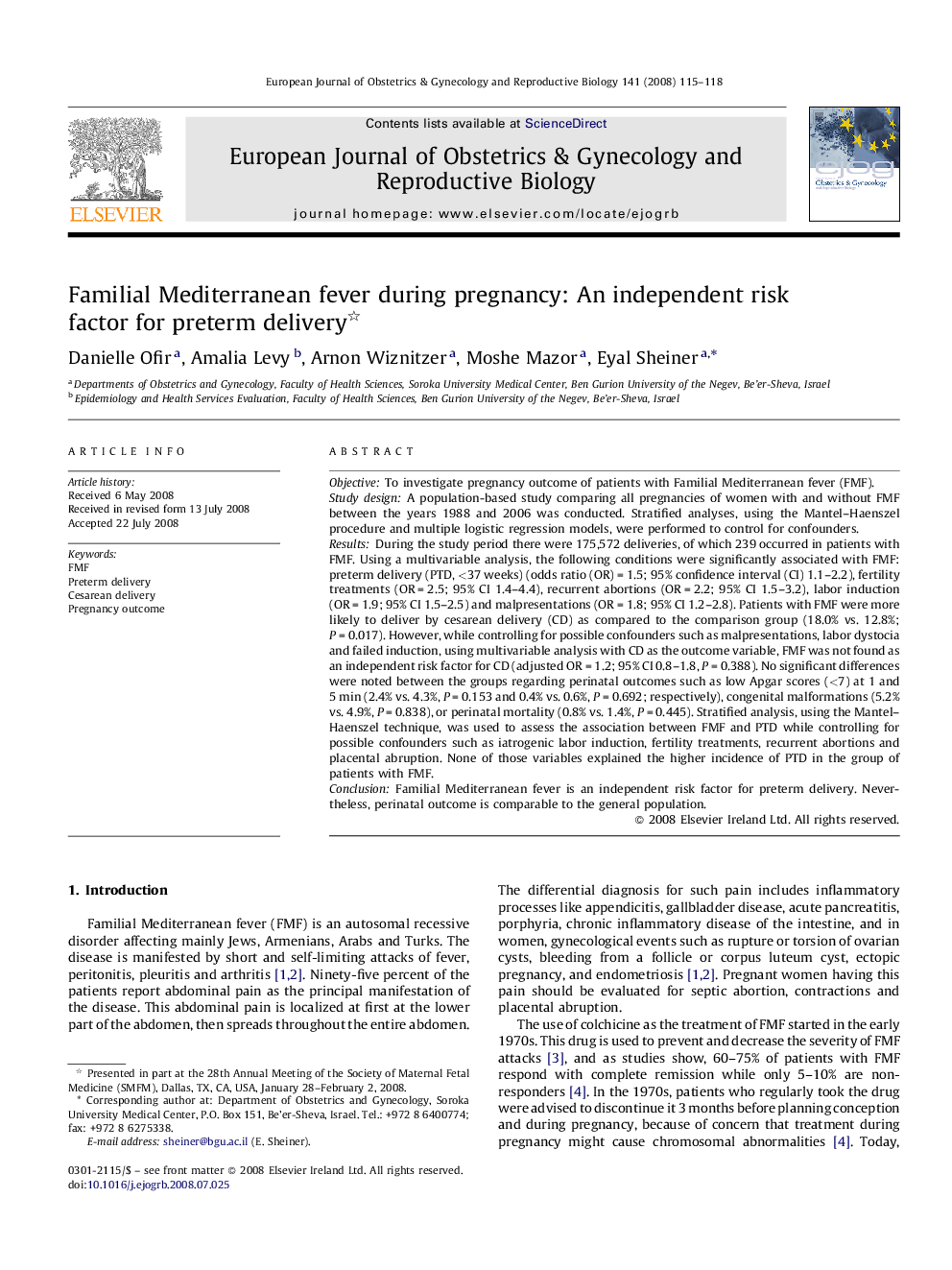| Article ID | Journal | Published Year | Pages | File Type |
|---|---|---|---|---|
| 3921324 | European Journal of Obstetrics & Gynecology and Reproductive Biology | 2008 | 4 Pages |
ObjectiveTo investigate pregnancy outcome of patients with Familial Mediterranean fever (FMF).Study designA population-based study comparing all pregnancies of women with and without FMF between the years 1988 and 2006 was conducted. Stratified analyses, using the Mantel–Haenszel procedure and multiple logistic regression models, were performed to control for confounders.ResultsDuring the study period there were 175,572 deliveries, of which 239 occurred in patients with FMF. Using a multivariable analysis, the following conditions were significantly associated with FMF: preterm delivery (PTD, <37 weeks) (odds ratio (OR) = 1.5; 95% confidence interval (CI) 1.1–2.2), fertility treatments (OR = 2.5; 95% CI 1.4–4.4), recurrent abortions (OR = 2.2; 95% CI 1.5–3.2), labor induction (OR = 1.9; 95% CI 1.5–2.5) and malpresentations (OR = 1.8; 95% CI 1.2–2.8). Patients with FMF were more likely to deliver by cesarean delivery (CD) as compared to the comparison group (18.0% vs. 12.8%; P = 0.017). However, while controlling for possible confounders such as malpresentations, labor dystocia and failed induction, using multivariable analysis with CD as the outcome variable, FMF was not found as an independent risk factor for CD (adjusted OR = 1.2; 95% CI 0.8–1.8, P = 0.388). No significant differences were noted between the groups regarding perinatal outcomes such as low Apgar scores (<7) at 1 and 5 min (2.4% vs. 4.3%, P = 0.153 and 0.4% vs. 0.6%, P = 0.692; respectively), congenital malformations (5.2% vs. 4.9%, P = 0.838), or perinatal mortality (0.8% vs. 1.4%, P = 0.445). Stratified analysis, using the Mantel–Haenszel technique, was used to assess the association between FMF and PTD while controlling for possible confounders such as iatrogenic labor induction, fertility treatments, recurrent abortions and placental abruption. None of those variables explained the higher incidence of PTD in the group of patients with FMF.ConclusionFamilial Mediterranean fever is an independent risk factor for preterm delivery. Nevertheless, perinatal outcome is comparable to the general population.
